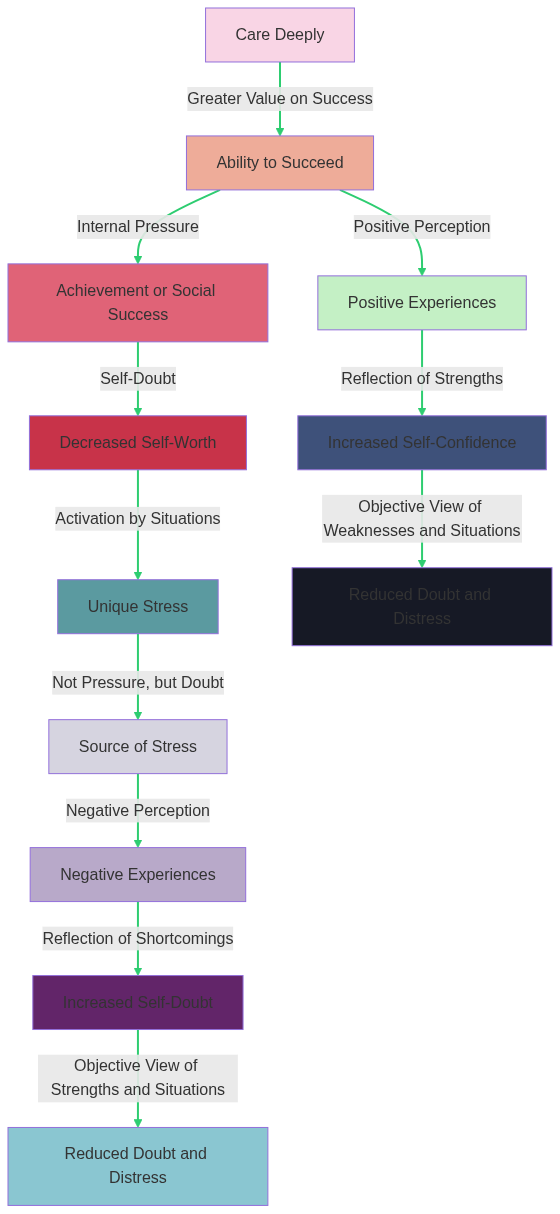Online FlowChart & Diagrams Editor - Mermaid Live Editor
mermaid.live
문제
Experts advise people to “take the stairs instead of the elevator” or “walk or bike to work.” These are good strategies: climbing stairs provides a good work-out, and people who walk or ride a bicycle for transportation most often meet their needs for physical activity. Many people, however, face barriers in their environment that prevent such choices. Few people would choose to walk or bike on roadways that lack safe sidewalks or marked bicycle lanes, where vehicles speed by, or where the air is polluted. Few would choose to walk up stairs in inconvenient and unsafe stairwells in modern buildings. In contrast, people living in neighborhoods with safe biking and walking lanes, public parks, and freely available exercise facilities use them often — their surroundings encourage physical activity.
* stairwell: 계단을 포함한 건물의 수직 공간
① 자연환경을 훼손시키면서까지 운동 시설을 만들어서는 안 된다.
② 일상에서의 운동 가능 여부는 주변 여건의 영향을 받는다.
③ 운동을 위한 시간과 공간을 따로 정해 놓을 필요가 있다.
④ 자신의 건강 상태를 고려하여 운동량을 계획해야 한다.
⑤ 짧더라도 규칙적으로 운동하는 것이 건강에 좋다.
단어
| English Word | Korean Translation |
| Experts | 전문가들 |
| Advise | 조언하다 |
| Strategies | 전략들 |
| Climbing | 등반 |
| Transportation | 교통수단 |
| Physical activity | 신체 활동 |
| Barriers | 장애물들 |
| Environment | 환경 |
| Roadways | 도로들 |
| Sidewalks | 보도 |
| Bicycle lanes | 자전거 도로 |
| Vehicles | 차량들 |
| Polluted | 오염된 |
| Stairwells | 계단 통로 |
| Neighborhoods | 이웃 |
| Public parks | 공공 공원 |
| Exercise facilities | 운동 시설 |
| Encourage | 격려하다 |
| Often | 자주 |
| Surroundings | 주변 환경 |
분석
1. "Experts advise people to 'take the stairs instead of the elevator' or 'walk or bike to work.'"
건강을 위해 도전적이거나 덜 편리한 길을 택하는 것이 바람직
"These are good strategies: climbing stairs provides a good work-out, and people who walk or ride a bicycle for transportation most often meet their needs for physical activity."
덜 편리한 선택의 이점
"Many people, however, face barriers in their environment that prevent such choices."
특정 선택을 어렵게 만들 수 있는 개인이 직면할 수 있는 도전이나 장벽
"Few people would choose to walk or bike on roadways that lack safe sidewalks or marked bicycle lanes, where vehicles speed by, or where the air is polluted."
환경적 장벽
"Few would choose to walk up stairs in inconvenient and unsafe stairwells in modern buildings."
제도적 또는 시스템적 문제
"In contrast, people living in neighborhoods with safe biking and walking lanes, public parks, and freely available exercise facilities use them often — their surroundings encourage physical activity."
환경이 어떻게 긍정적인 선택을 장려할 수 있는가
변형문제
Experts advise people to "(blank 1)" or “walk or bike to work.” These are good strategies: "(blank 2)", and people who walk or ride a bicycle for transportation most often meet their needs for physical activity. Many people, however, face barriers in their environment that prevent such choices. Few people would choose to walk or bike on roadways that lack safe sidewalks or marked bicycle lanes, where vehicles speed by, or where the air is polluted. Few would choose to walk up stairs in inconvenient and unsafe stairwells in modern buildings. In contrast, people living in neighborhoods with safe biking and walking lanes, public parks, and freely available exercise facilities use them often — their "(blank 3)" encourage physical activity.
Blank 1:
a) take the elevator instead of the stairs
b) use the stairs instead of the elevator (answer)
c) always use the elevator
d) never take the stairs
e) avoid stairs and elevators
Blank 2:
a) riding an elevator does not provide a workout
b) climbing stairs provides no benefits
c) taking the stairs does not constitute physical exercise
d) climbing stairs can be a useful exercise (answer)
e) biking to work is unhealthy
Blank 3:
a) homes
b) offices
c) living conditions
d) pets
e) surroundings (answer)
배경지식
https://www.perplexity.ai/search/ac990cd9-c0aa-424a-8f11-1afa6c501ada?s=u
Experts advise people to “take the stairs instead of the elevator” or “walk or bike to work.” These are good strategies:
The benefits of physical activity are widely known, but many people face barriers that prevent them from being active. For example, walking or biking on unsafe roads without sidewalks or bike lanes, or climbing stairs in inconvenient and unsafe stairwells
www.perplexity.ai
https://www.perplexity.ai/search/ac990cd9-c0aa-424a-8f11-1afa6c501ada
Experts advise people to “take the stairs instead of the elevator” or “walk or bike to work.” These are good strategies:
The benefits of physical activity are widely known, but many people face barriers that prevent them from being active. For example, walking or biking on unsafe roads without sidewalks or bike lanes, or climbing stairs in inconvenient and unsafe stairwells
www.perplexity.ai
https://www.perplexity.ai/search/ac990cd9-c0aa-424a-8f11-1afa6c501ada
Experts advise people to “take the stairs instead of the elevator” or “walk or bike to work.” These are good strategies:
The benefits of physical activity are widely known, but many people face barriers that prevent them from being active. For example, walking or biking on unsafe roads without sidewalks or bike lanes, or climbing stairs in inconvenient and unsafe stairwells
www.perplexity.ai
#TakeTheStairs #WalkOrBike #HealthyLifestyle #CityLife #UrbanPlanning #ActiveLiving #FitnessJourney #EverydayWorkout #NoGymNeeded #TransformTheCity #CommunityAction #HealthyCities #PhysicalActivity #SafeRoads #GreenLiving #PublicSpaces #AccessibleFitness #WalkableCity #UrbanDesign #BicycleLanes #PedestrianFriendly #SustainableLiving #OutdoorWorkout #ActiveTransportation #HealthAndWellness #MoveMore #YourCityYourGym #BetterFuture 🙌🌍
'수능 지문 연구' 카테고리의 다른 글
| 수능 킬러문항 영어 분석 (2023년 6월 26일 교육부 발표) (2) | 2023.06.27 |
|---|---|
| 2023학년도 6월 고1 모의고사 워크북 무료 나눔 (0) | 2023.06.05 |
| 고1 2021(3월)/22 연구 (0) | 2023.05.23 |
| 고1 2021(9월)/22 분석 및 변형문제 (1) | 2023.05.12 |
| 고1 2020(11월)/22 분석 및 변형문제 (0) | 2023.05.12 |









